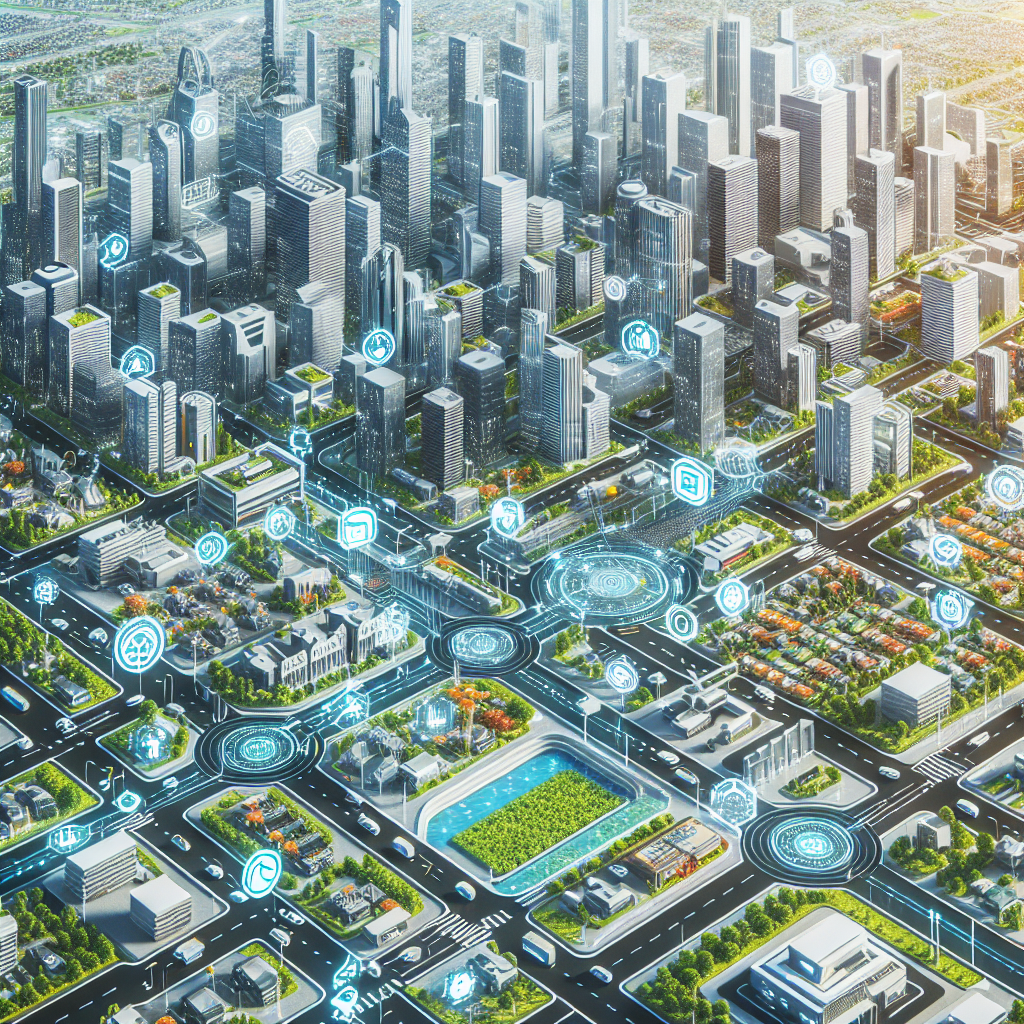Introduction
Smart cities are rapidly becoming a reality around the world, as cities leverage technologies like artificial intelligence (AI) automation to improve efficiency, sustainability, and quality of life for residents. AI automation plays a crucial role in the development of smart cities, enabling the seamless integration of various systems and services to create more connected and responsive urban environments. In this article, we will explore the role of AI automation in smart cities and how it is shaping the future of urban living.
What is AI Automation in Smart Cities?
AI automation refers to the use of artificial intelligence technologies to automate and optimize various processes and systems within a city. This can include everything from traffic management and energy consumption to waste management and public safety. By harnessing the power of AI, cities can collect and analyze vast amounts of data in real-time, allowing for more efficient decision-making and resource allocation.
One of the key benefits of AI automation in smart cities is its ability to improve the overall quality of life for residents. For example, AI-powered traffic management systems can help reduce congestion and commute times, while smart energy grids can optimize energy usage and reduce costs for both residents and businesses. Additionally, AI automation can enhance public safety by enabling quicker responses to emergencies and more effective surveillance of public spaces.
How Does AI Automation Work in Smart Cities?
AI automation works by collecting and analyzing data from various sources, such as sensors, cameras, and other IoT devices, to make informed decisions and take appropriate actions. For example, in a smart traffic management system, AI algorithms can analyze traffic patterns in real-time and adjust traffic signals to optimize the flow of vehicles. Similarly, in a smart energy grid, AI can predict energy demand and adjust supply accordingly to prevent blackouts and reduce costs.
Another important aspect of AI automation in smart cities is its ability to learn and adapt over time. By continuously analyzing data and feedback, AI algorithms can improve their performance and make more accurate predictions. This allows cities to continuously optimize their systems and services to better meet the needs of residents and businesses.
What are the Benefits of AI Automation in Smart Cities?
There are numerous benefits to implementing AI automation in smart cities, including:
1. Improved efficiency: AI automation can help streamline processes and reduce manual interventions, leading to increased efficiency and cost savings for cities.
2. Enhanced sustainability: By optimizing energy consumption, waste management, and transportation systems, AI automation can help cities reduce their environmental footprint and promote sustainability.
3. Better quality of life: AI automation can improve public services, such as healthcare, education, and public safety, leading to a better quality of life for residents.
4. Increased safety: AI automation can enhance public safety by enabling quicker responses to emergencies and more effective surveillance of public spaces.
5. Economic growth: By optimizing city services and infrastructure, AI automation can attract businesses and talent, driving economic growth and innovation.
What are the Challenges of Implementing AI Automation in Smart Cities?
While the benefits of AI automation in smart cities are clear, there are also several challenges that cities must overcome when implementing these technologies. Some of the key challenges include:
1. Data privacy and security: Collecting and analyzing vast amounts of data can raise concerns about privacy and security, as cities must ensure that sensitive information is protected from unauthorized access.
2. Integration of systems: Integrating various systems and services within a city can be complex and time-consuming, as different departments and stakeholders may have different requirements and priorities.
3. Funding and resources: Implementing AI automation in smart cities requires significant investment in infrastructure, technology, and talent, which may be challenging for cities with limited resources.
4. Regulatory and legal issues: Cities must navigate a complex regulatory landscape when implementing AI automation, ensuring compliance with data protection laws and other regulations.
5. Public acceptance: Some residents may be skeptical of AI automation in smart cities, fearing job losses, loss of privacy, or other negative consequences.
FAQs
1. What are some examples of AI automation in smart cities?
Some examples of AI automation in smart cities include smart traffic management systems, smart energy grids, predictive maintenance of infrastructure, automated waste management, and intelligent public safety systems.
2. How can AI automation improve public safety in smart cities?
AI automation can enhance public safety in smart cities by enabling quicker responses to emergencies, more effective surveillance of public spaces, and predictive analysis of crime patterns to prevent incidents before they occur.
3. How can cities address concerns about data privacy and security when implementing AI automation?
Cities can address concerns about data privacy and security by implementing robust encryption and authentication mechanisms, ensuring compliance with data protection laws, and providing clear guidelines for data collection and use.
4. What are some of the economic benefits of AI automation in smart cities?
Some of the economic benefits of AI automation in smart cities include increased efficiency and cost savings, economic growth and innovation, and attracting businesses and talent to the city.
5. How can cities ensure public acceptance of AI automation in smart cities?
Cities can ensure public acceptance of AI automation in smart cities by engaging with residents and stakeholders, providing transparency about the benefits and risks of these technologies, and implementing clear policies to address concerns about privacy, security, and job displacement.

